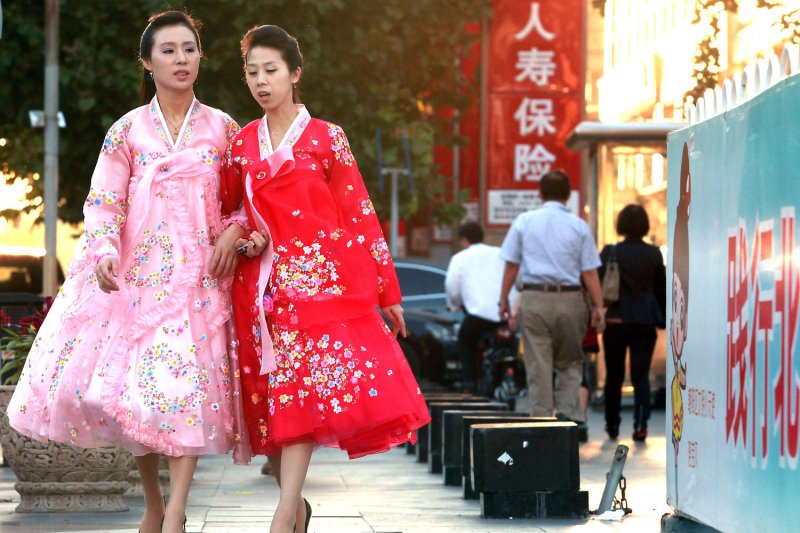North Korean women in China are often subject to human trafficking and are at risk of forced repatriation, activists in Washington, D.C., said on Tuesday. UPI/Stephen Shaver |
License Photo
WASHINGTON, Nov. 1 (UPI) -- North Korean women activists who experienced rights abuses in North Korea and China protested Beijing's forced repatriation of North Korean refugees on Tuesday.
Speaking at a Heritage Foundation forum addressing the issue of human trafficking in China, three North Korean defector-activists said China's repatriation policy forces women to give up their children, Yonhap reported.
Kim Jeong-ah, founder and executive director of Tongil Mom, a group of North Korean women who seek to be reunited with their children, said the Chinese government's unilateral policy of forced repatriation must come to an end.
Kim, who defected from North Korea, said the policy leaves no choice for women defectors but to leave their children behind, whether they resettle in China through legitimate means or are human trafficking victims.
Kim also said North Korean women who are pregnant undergo abortions in North Korea after repatriation.
Women who settle in China are often forced into marriage or agree to live with Chinese "husbands," according to the Heritage Foundation.
Hwang Hyun-jeong, a defector and member of Tongil Mom, said she suffered countless human rights abuses during her time in China. But Hwang said whether it is human trafficking or beatings, women defectors often hide their ordeal due to a sense of shame they feel about their experiences.
Lee Young-hee, another Tongil Mom member, said she had to leave behind a four-year-old son in China.
Lee said she had married a Chinese national in compliance with local law, but her status did not guarantee her immunity from arrest and deportation.
The lack of security in China prompted Lee to leave and to make the hard choice of abandoning her son, according to Yonhap.















